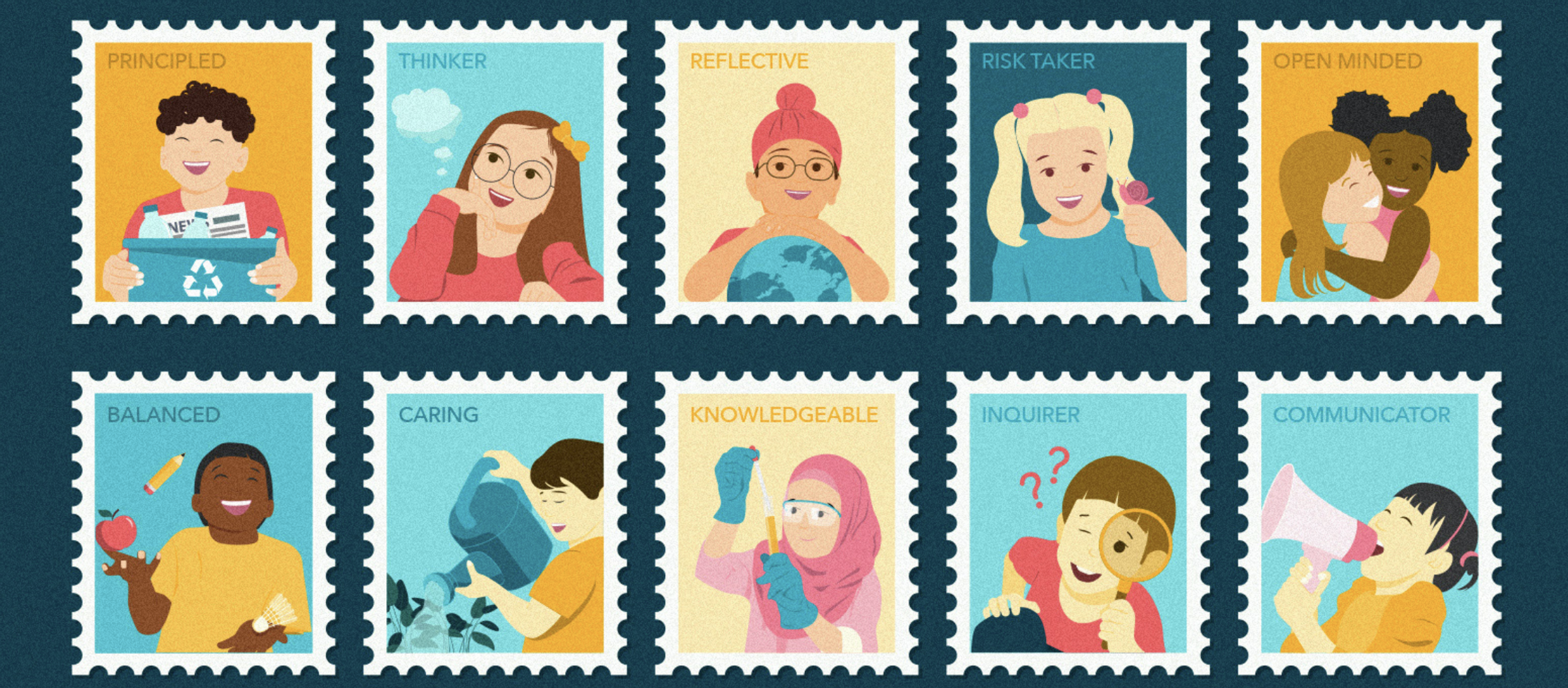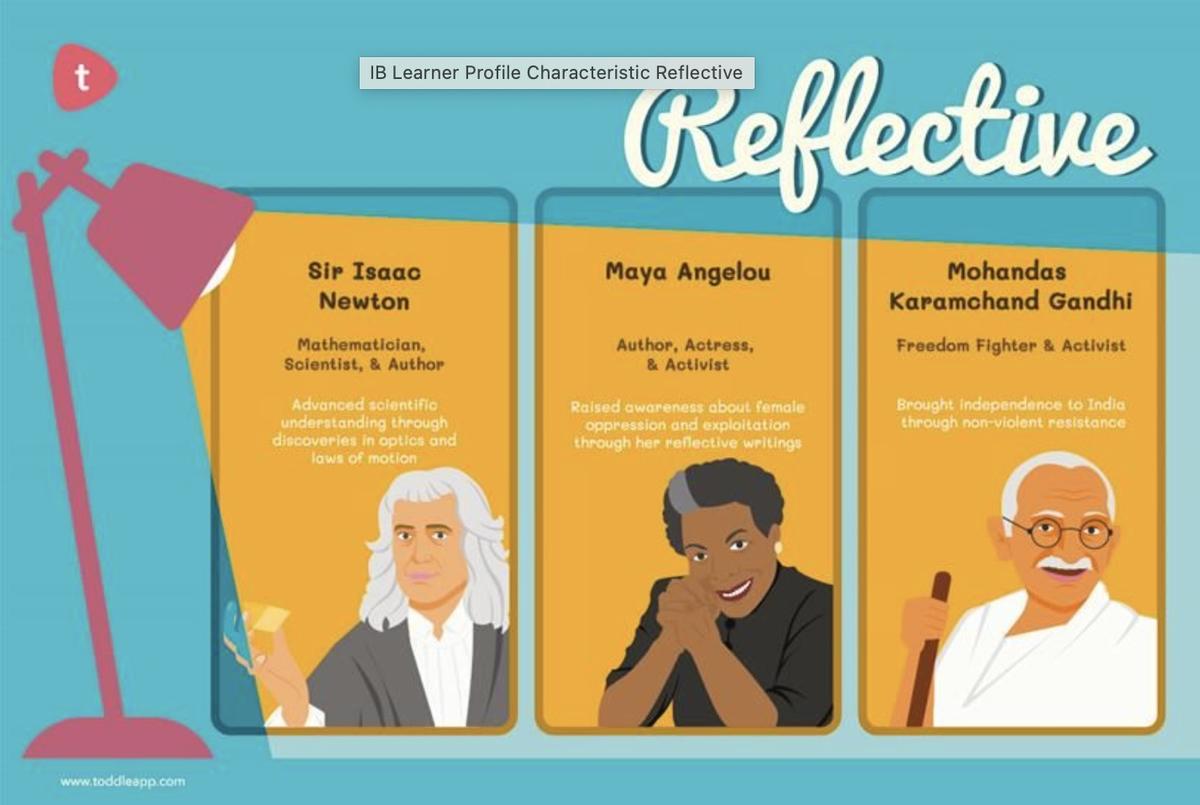Learner Profile Bulletin Board

IB Learner Profile: REFLECTIVE
The "Reflective" attribute in the IB Learner Profile emphasises the importance of thoughtful consideration of one’s own learning experiences.
Reflective learners critically assess their strengths and weaknesses, understand how their actions affect others, and strive for personal growth.
They consider their learning processes and outcomes, and they use this self-awareness to improve their understanding and performance.
Being reflective is crucial because it fosters self-awareness and self-improvement. It helps students develop the ability to evaluate their own progress and make informed decisions about their future learning strategies.
Fostering the reflective learner attribute at home can be a rewarding process that involves consistent encouragement and activities that promote self-awareness and critical thinking.
Practical Suggestions:
- Model Reflective Behaviour: Share your own reflections on daily experiences or decisions. Talk about what went well, what didn’t, and what you learned from it.
- Create a Reflective Environment: Set aside regular times for family discussions where everyone shares something they learned or experienced, reflecting on its significance.
- Encourage Journaling: Provide your child with a journal to write down their thoughts, feelings, and reflections on their day, focusing on what they learned and how they can improve.
- Ask Open-Ended Questions: Encourage deeper thinking by asking questions like, “What did you learn from this experience?” or “How would you approach this differently next time?”
- Celebrate Mistakes: Treat mistakes as learning opportunities. Discuss what went wrong and how it can be corrected in the future.
Activities You Can Do At Home With Your Child:
- Daily Reflection Time: Set aside 10-15 minutes each evening for your child to reflect on their day. Ask them to think about what they accomplished, what challenges they faced, and what they can do differently next time.
- Goal Setting and Review: Help your child set short-term and long-term goals. Periodically review these goals together, discussing progress, challenges, and adjustments needed.
- Mindfulness and Meditation: Practice mindfulness or meditation together. These practices can help children become more aware of their thoughts and feelings, fostering a reflective mindset.
- Reading and Discussing Books: Read books together that include themes of personal growth and reflection. Discuss the characters’ decisions, motivations, and growth throughout the story.
- Reflective Art Projects: Engage in art projects where your child expresses their feelings and experiences. Afterward, discuss what their artwork represents and what they learned from the process.
By integrating these suggestions and activities into daily routines, you can nurture the reflective learner attribute in your children and help them develop a lifelong habit of self-assessment and personal growth.
A learning experience that caught my attention was when we had an online incursion with one of the ladies who helped run Parliament House. This particular event grabbed my attention because we did a drawing to help better understand how to help if you were a leader. I always think that drawing things would help me recognise how to do things more efficiently. And I thought that webex session really helped me . -- Hayda

